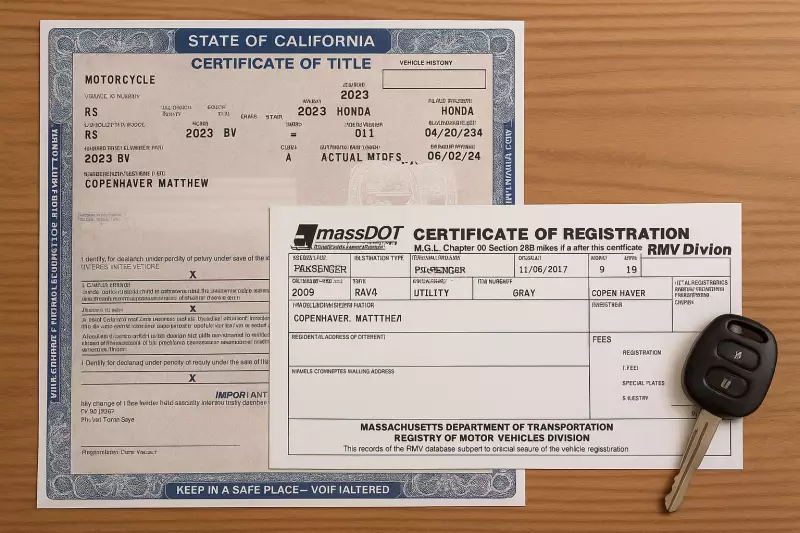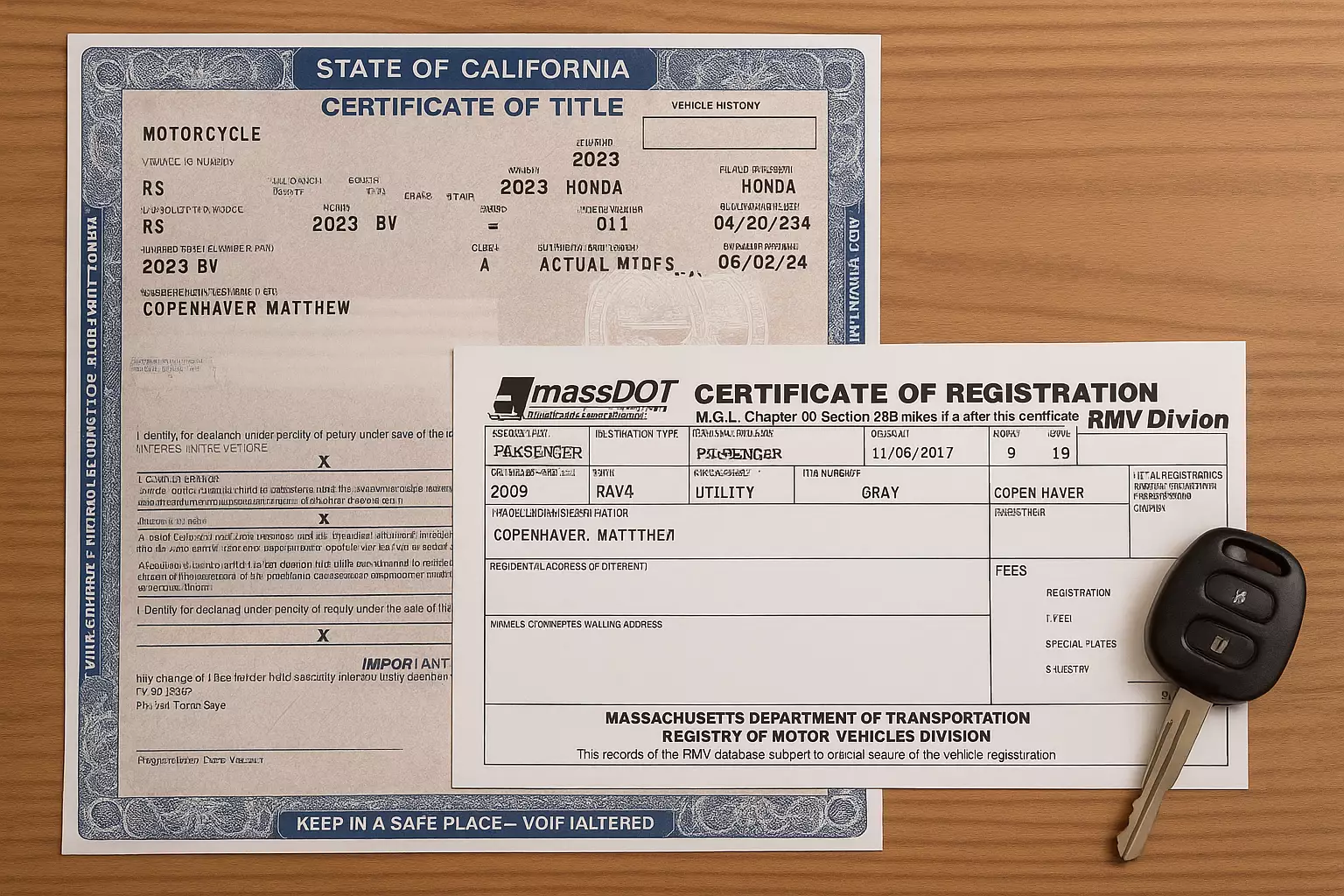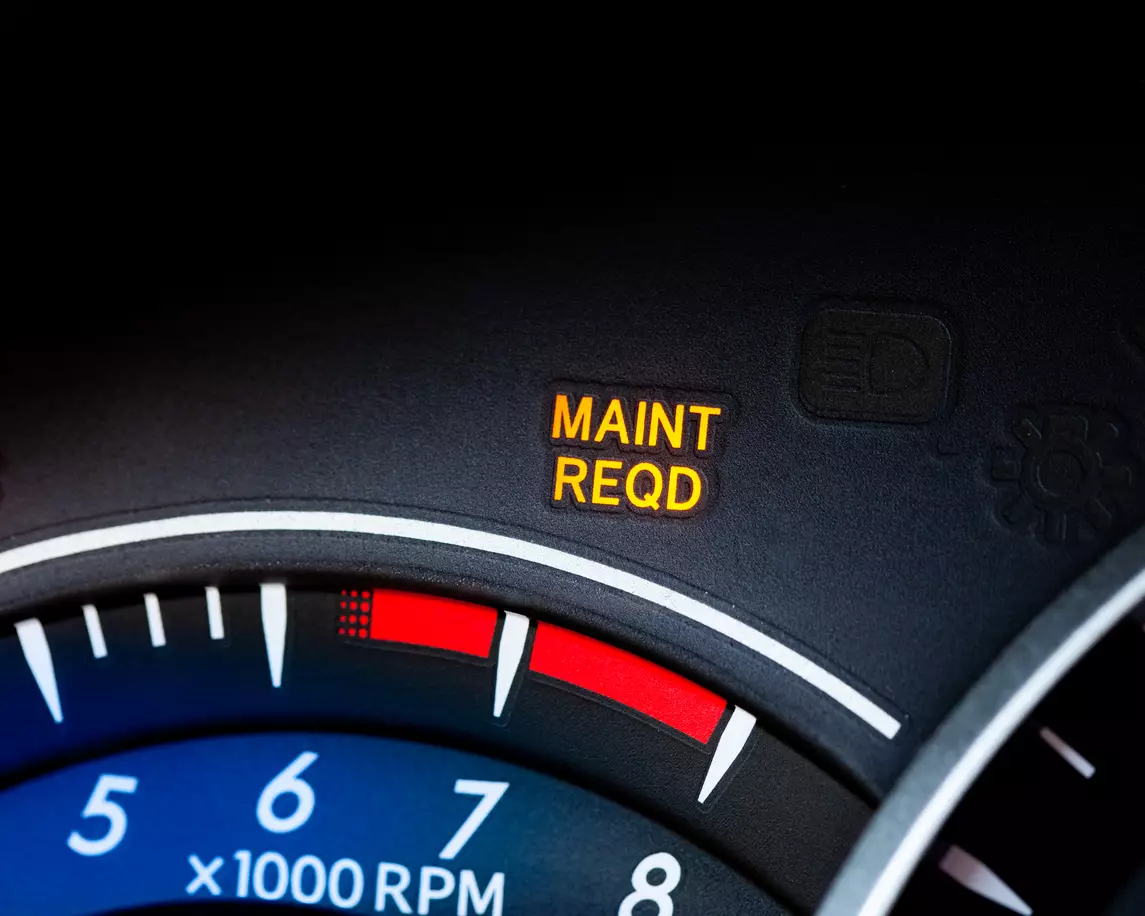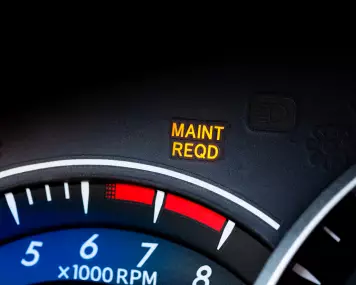Every time you slide into the driver’s seat, ready to drive, you’re entrusting a stack of documents to prove your right to the open road. Among those papers, two terms often confuse the most experienced drivers: title vs registration. You may have been wondering: “Is registration the same as title?” The answer is no. Although both vehicle title and registration are essential documents that prove your right to operate and own a vehicle, they serve different purposes.
Whether buying your first car, renewing an older ride, or simply curious about what’s in your glove compartment, understanding the difference between title and registration is the first step toward hassle-free driving.

What Is a Car Title?
A car title is the official, legal document that proves you own your vehicle. It is typically issued by your state’s Department of Motor Vehicles (DMV) or equivalent agency. When you purchase a new or used car, the DMV sends you the certificate of ownership, tying you to the vehicle. A car title bears critical information about your car - its Vehicle Identification Number (VIN), make and model, year of manufacture, and the name and address of the registered owner.
Beyond proving who owns the car, the car title comes into play when the vehicle changes hands. When you sell or transfer ownership, you sign over the title to the new buyer, ensuring a clean, legal transfer. In addition, insuring or financing your car also requires showing the title so the insurers and lenders know which vehicle is covered or secured by the loan. Likewise, if your title is stolen, lost, or damaged, you’ll need to request a duplicate from the DMV - otherwise, you risk running into delays the next time you try to sell, trade, or insure your vehicle.
Essentially, your car title confirms you’re the rightful owner. Think of it as your vehicle’s “birth certificate” and “deed of ownership” combined. Without it, you can’t legally sell, transfer, refinance, or even fully insure your car.
What Is Vehicle Registration?
Vehicle registration is your state’s official permission to operate a vehicle on public roads. Vehicle registration is your car’s ticket to legally cruising public roads. It is issued by your state’s DMV or equivalent agency, serving as official proof that you’ve met all requirements - paid the necessary taxes, title fees, and registration dues, to operate that specific vehicle in your state. Unlike your title, which establishes ownership, registration legitimizes your car’s presence on the road and helps the authorities verify you are properly insured and taxed.
What It Includes
Here's what a complete vehicle registration typically includes:
- Registration Card or Certificate: This is a wallet-sized card or paper certificate issued by the DMV or equivalent agency in your state. The registration card is your “proof of registration” required when renewing or transferring registration. The document contains the name and address of the registered owner, the year, make, model, color, VIN, and sometimes the odometer reading at registration. In addition, the registration card specifies the registration period, including the issue and expiry date, and the registration number, used by the DMV to track your registration record.
- License Plate and Sticker: The license plate is your car’s “name tag” for road visibility. It is the metal or plastic plate bearing an alphanumeric sequence uniquely assigned to your vehicle. License plates are usually placed on the front and rear bumpers. A validation sticker is a tab or decal placed on your license plate indicating that your registration is current. The validation sticker typically displays the month and year of expiration. It is sometimes color-coded by year for quick visual checks. License plates and stickers let law enforcement confirm your registration status at a glance.
- Proof of Taxes and Fees: If you purchase your vehicle from a dealer, the sales tax is usually collected at the point of sale. Private party transfers may require you to pay the tax directly at the DMV. Vehicle registration fees vary by state and usually depend on factors such as vehicle weight, age, value, and local county surtaxes. In some jurisdictions, local vehicle tax applies based on where you live. You may provide proof of payment of these fees before you complete or renew your vehicle registration.
- Proof of Insurance: Vehicle registration also includes proof of insurance. It is a document, typically in the form of a card, that proves you have an active car insurance policy that meets the state minimum requirements. The insurance card contains the policy number, effective dates, VIN, license plate, and insurer’s information.
- Emission or Safety Inspection Certificate: A vehicle emission or safety inspection certificate forms part of vehicle registration documents in states with air-quality regulations or states that mandate periodic checks of brakes, lights, tires, and other critical safety systems. Where applicable, the document confirms that the car has passed safety and emission tests and has met legal and environmental standards to operate on public roads.
When You Need It
Your vehicle registration is an ongoing obligation required during your car-owning journey. Therefore, you will need your vehicle registration at the following phases:
- After Purchase: Whether buying a new car from a dealership or purchasing a pre-owned vehicle from a private seller, the moment you take ownership, you are legally required to register the vehicle in your name. Most dealerships handle the title transfer and initial registration paperwork. They typically collect sales tax, registration fees, and any local surcharges before submitting the forms at the DMV. For private-party purchases, you and the seller complete a title transfer form, pay the applicable sales tax, and submit a registration application to the DMV within your state’s deadline.
- Moving to a New State: Most states require new residents to register their vehicle within 30 to 90 days of establishing residency. When you change states, your out-of-state vehicle registration is no longer valid. To register your vehicle in your new state, you will need your out-of-state registration card, proof of new address, proof of insurance, and a safety and emission inspection, if applicable.
- Annual or Biennial Renewal: Vehicle registration is not a one-time event. To keep driving legally, you must renew before your registration expires, usually every year or two, depending on the state. You’ll typically get a new registration sticker to apply to your license plate and an updated registration card to carry in your vehicle.
Car Title vs Registration: What Is the Difference
The distinction between a car title vs. registration is that your car title proves you own the vehicle, while your vehicle registration proves it's legal to drive. Although both documents come from the state DMV, they serve entirely different roles in vehicle ownership and operation. Mixing up these documents may cost you.
Driving without a valid registration can lead to fines, impoundment, or a suspended license, while trying to sell a car without its title means you can’t complete a legal transfer of ownership, leaving both seller and buyer in a difficult situation.
Here is exactly how a car title differs from a vehicle registration.
|
Feature |
Car Title |
Vehicle Registration |
|
Purpose |
Proves ownership (like a deed) |
Grants legal permission to drive |
|
Required to drive? |
⌠No |
✅ Yes |
|
Includes license plates? |
⌠No |
✅ Yes |
|
Transferable on sale? |
✅ Yes (signed to the buyer) |
⌠No (buyer must re-register) |
|
Validity period |
Permanent (until sold) |
1-2 years (must renew) |
|
Issued by |
State DMV |
State DMV |




















